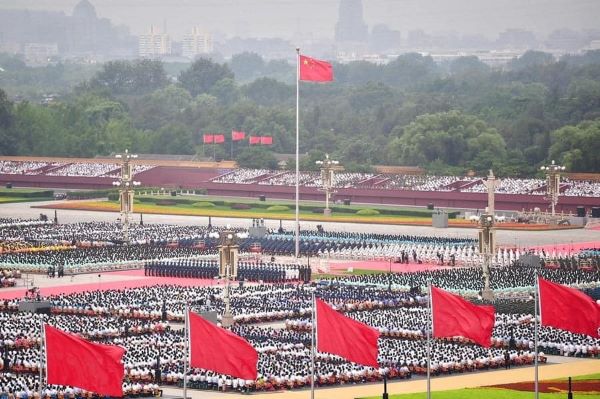
R Krishna Das
If the rural pocket is the parameter, China has eradicated poverty that many experts contest.
The Chinese Communist Party (CCP) that is celebrating its centenary year claimed that it has eliminated extreme poverty from the country. President Xi Jinping and CPP has listed it as its biggest achievement after it came to power some 8 years ago. Late last year, the party announced that extreme poverty had been successfully eradicated, despite negative economic growth in the first half of the year caused by the coronavirus pandemic.
Interestingly, Beijing had offered its approach as worthy of study throughout the developing world and published a white paper describing how China achieved its “final victory” against poverty.
But neither Xi nor state media could explain how the figures were calculated and what threshold was used, prompting questions about the metrics. In 2019, China’s statistics bureau defined rural poverty as below per capita annual income of 2,300 yuan ($356). Previous officials have defined the poverty line as less than 4,000 yuan ($620) a year, or $1.69 a day — less than the World Bank’s threshold of $1.90 a day and well below the $5.50 a day that economists recommend for upper-middle-income countries.
China is now an upper-middle-income country.
Ironically, a new study had also challenged the tall claims contending that Beijing used a narrow and inflexible definition of what it means to be poor. The authorities, by and large, considered rural pocket are the parameter and pulled it out of poverty to substantiate its tall claim that Bill Bikales, a former UN senior economist in China, contested. China has not done enough to claim final victory over poverty, he said in a study.
“China has not eradicated poverty, not even extreme poverty. And you won’t until you have workable systems that identify poor people everywhere. . . and until the country provides a safety net for all its people [including] those who are hit by death, serious illness, job loss or other impact,” he wrote in the report, which was funded by the Swiss Agency for Development and Cooperation.
Poverty in China is considered a purely rural phenomenon, despite the fact that more than 60 per cent of its population lives in urban areas.
Launched in 2013, Xi’s campaign identified all the rural poor (89.98 million in 2015) and registered them in a national database. He then mobilized the state’s vast resources to ensure they were no longer below the poverty line by the end of 2020.
But the statistics failed to make reference of the poor living in the urban areas and the floating population.



